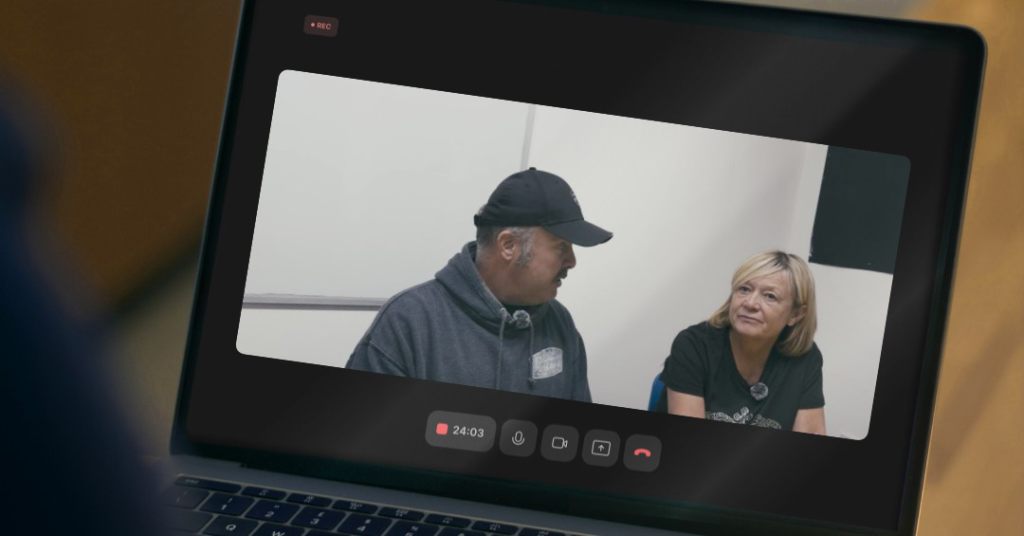“We Just Knew”: Sylvia and Andrew’s Journey into Fostering
“We’d got into a rut,” Sylvia reflects. “You get older, you’re on your iPad and he’s on his. Fostering pulled us back together. We’ve had to work as a team again.”
When Sylvia first thought about fostering, she was barely 18. Life carried her in different directions, but the idea never really went away. Years later it was a family nudge that set things in motion. Her son pointed out that his uncle and aunt were fostering and suggested she look into it. A Facebook post followed, then a call from Progress Care just before Christmas, and the journey began.
Andrew describes his first impression of fostering simply: “Just taking them in and looking after them, giving them a safe environment. Secure. Loved.” The reality was more intense. “I felt thrown in at the deep end,” he admits with a smile. The children who came into their home had their own histories, their own ways of coping. The couple quickly realised fostering was about gently helping them find their place in the world while respecting where they had come from.
The adjustment was not without challenges. Their first evening with siblings was a sharp learning curve. “We didn’t know they had always shared a room, so we put them into separate bedrooms,” Sylvia recalls. “That first night was tough. But by ten-thirty, they were fast asleep, and we had to wake them the next morning at half eight. It felt like a turning point.”
They discovered that small, consistent acts made all the difference. One child was quiet and reluctant to speak. “We just kept talking,” Andrew says. “Pointing out cars, colours, anything. Within a day, the change was huge. His social worker even said so. To us it felt natural, like parenting.”
Getting approved as foster carers had been a journey in itself. Sylvia and Andrew describe the assessment process as “intrusive” and at times exhausting. “There were moments when I thought, why do they need to know that?” Sylvia remembers. “But then you realise they need to dig deep. It’s about making sure you’re really ready.”
What made the difference was the support they received along the way. Their social workers checked in constantly, answered questions, and reassured them whenever doubts crept in. “I’d ring up worried something in our history might go against us,” Sylvia says. “But every time I asked, they explained why it wouldn’t hold us back. If anything, it showed we had life experience that could help us as carers.”
The training, too, was less daunting once they realised help was always on hand. “We were sent nine modules at once, which was overwhelming,” Sylvia laughs. “At one point I pressed the wrong button and sent us back to the start. But our training team talked us through it and reminded us we didn’t need to overthink. Whenever we got stuck, someone was there to guide us.”
By the time their panel day came, nerves were high, but they didn’t walk into the room unprepared. “We were told exactly what to expect, and our social worker kept reassuring us that we’d be fine,” Andrew says. “Yes, it’s nerve-racking, but you’re not left on your own.”
Approval quickly became reality. On 17 July they were signed off, and within days they had a call about the siblings who are now part of their lives. “We’d asked for siblings, and when we read their details, we just knew they were perfect for us,” Sylvia says. But the first week was not without its stresses. The children arrived with almost nothing. “No car seats, no clothes. That was hard. But family stepped in straight away, sending us what we needed. From then on, things fell into place.”
Andrew had just left his job in a chemical waste plant; having taken voluntary redundancy as the shop he had also worked for was closing. The timing, he says, was uncanny. “From the day we started this journey, everything lined up. It felt like this was what we were meant to do.”
Support hasn’t stopped since approval. Daily logs are checked, social workers drop in regularly, and the couple know they can call for advice at any time. “We’re not expected to be perfect,” Sylvia says. “We’re expected to care, to listen, and to ask for help if we need it.”
The experience has also reshaped their own relationship. “We’d got into a rut,” Sylvia reflects. “You get older, you’re on your iPad and he’s on his. This pulled us back together. We’ve had to work as a team again.” Organisation has returned to their daily lives too. “I used to be mega organised,” she says. “Over time I’d let that slip, but now I’ve found it again. Bags packed the night before, everything ready. It feels good.”
They both agree fostering isn’t about perfection or special qualifications. It’s about character. “You’ve got to be open, loving, caring, and have common sense,” Andrew says firmly. “If you’ve got that, you can do it. And you won’t be doing it alone. There’s always someone there to support you.”
For Sylvia and Andrew, the most rewarding part is watching the children grow. “They’ve already come on so much,” Sylvia says. “Sharing, playing, talking. School will see it too, I know they will. That’s what I’m looking forward to. People saying, I can’t believe the difference. That will mean everything.”




